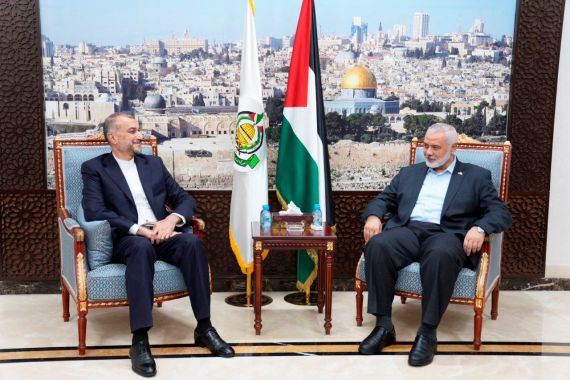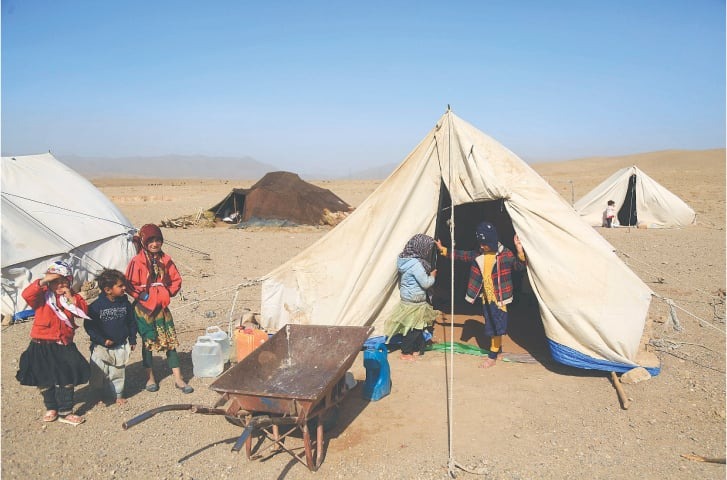Iran has issued a stern warning to Israel as the ongoing conflict in Gaza enters its second week. The Iranian Foreign Minister, Hossein Amir-Abdollahian, has cautioned Israel against a potential ground invasion of Gaza, stating that if immediate measures to halt Israeli attacks do not yield results, the region could witness a significant escalation. Amir-Abdollahian emphasized that such a scenario is increasingly likely, casting a shadow of uncertainty over the war-ravaged region. As this conflict continues to exact a heavy toll on civilians and prompt international concerns, this report delves into the evolving situation.
Iran’s Threat of Regional Escalation Amidst Gaza Conflict
Iran’s warning comes at a critical juncture in the Gaza-Israel conflict, where violence has spiraled to unprecedented levels. The conflict was ignited when Hamas, the Palestinian armed group, executed an audacious attack within Israeli territory on October 7th. Israeli airstrikes have since claimed the lives of over 2,670 people, including a quarter of them children, while almost 10,000 others have been wounded in Gaza. The magnitude of human suffering in the enclave has plunged it into a catastrophic humanitarian crisis.
Amir-Abdollahian, in his address, also hinted at the possibility of a broader regional conflict if Israeli actions persist unabated. While Tehran has denied direct involvement in the Hamas assault on Israel, it has been actively involved in diplomatic efforts to end the violence. The Iranian minister’s meeting with Hamas leader Ismail Haniyeh in Qatar, along with appeals to Islamic nations for support, underscores Iran’s role in seeking a resolution to the crisis.
UN Estimates Massive Displacement in Gaza as Israeli Military Readies for Ground Invasion
The United Nations has reported that nearly one million people, constituting nearly half of Gaza’s population, have been forcibly displaced from their homes, a harrowing consequence of the Israeli military’s preparations for a ground invasion. The situation in Gaza continues to deteriorate, with civilians enduring immense hardship and danger. On the Israeli side, officials have reported that at least 1,400 people, including 289 soldiers and foreign nationals, have lost their lives in this conflict. The region stands on the precipice of a larger-scale catastrophe, prompting global concern.
Saudi Arabia’s Normalization Talks with Israel on Hold; Israel Braces for Multi-Front Conflict
Saudi Arabia, which had been engaged in normalization talks with Israel, has reportedly suspended these discussions due to the ongoing conflict. Saudi Crown Prince Mohammed bin Salman’s recent phone call with the Iranian president signals a significant shift in regional dynamics, with diplomatic ties being reevaluated.
Meanwhile, Israel is preparing for the potential expansion of the war to multiple fronts. Israel’s actions include bombing airports in Syria to thwart any potential Iranian mobilization efforts there. Furthermore, the declaration of its border with Lebanon as a closed military zone amidst continued clashes with Hezbollah underscores the region’s volatility.
In an alarming development, Iran has reportedly communicated to Israel through the UN its desire to prevent further escalation in the Gaza conflict, emphasizing its preference for de-escalation. However, it has warned that it will respond if Israeli strikes persist. This situation poses a serious threat to regional stability, and Iran’s position adds to the complexities of the ongoing crisis.
As the Gaza conflict continues to unfold and the specter of regional escalation looms, it is imperative that diplomatic efforts intensify to end the violence and alleviate the suffering of civilians in the affected areas. The international community’s role in mediating a peaceful resolution becomes increasingly pivotal in averting further tragedy in this volatile region.
















